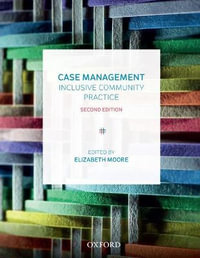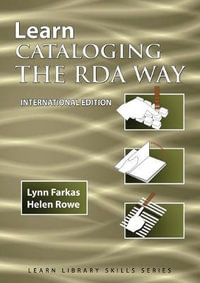The identification of recorded information with continuing value that documents corporate and cultural memory is one of the archivist's primary tasks, and he/she accomplishes this mission, in part, through the process of appraisal. But does traditional archival appraisal, based on the concepts of primary and evidential values, effectively serve the needs of institutional archivists and records managers? In an age of scarcity and the challenge of electronic records, can archivists and records managers continue to rely upon a methodology essentially unchanged since the early 1950s? Using Functional Analysis in Archival Appraisal: A Practical and Effective Alternative to Traditional Appraisal Methodologies shows how archivists in other countries are already using functional analysis, which offers a better, more effective, and imminently more practical alternative to traditional appraisal methodologies that rely upon an analysis of the records themselves. From this book, information professionals will learn *what functional analysis is and how it is already used around the world; *its useful application for a variety of record types and media, including print, non-textual, electronic, and "born-digital" records; *how functional analysis provides an alternative to a hierarchical arrangement scheme based upon record groups, sub-groups, and series that mimics the structure of an institution or organization; *a recommended process for the practical and effective implementation of functional analysis.
Industry Reviews
As a fairly dramatic portrayal of the plight of the lone arranger in a small archives who has assistance in the appraisal task only from work-study students, yet who is called on to tackle the creation of a full-fledged records archives for the institution (and the book does focus on institutional records), the book is revelatory, with the gritty feel of backstage archival struggle. * The American Archivist *
Marcus Robyns' book is a little gem for anyone studying or practising archives and records management. Ostensibly about functional appraisal, it manages to act as a potted history of approaches to archival appraisal over time and across national and cultural borders, whilst simultaneously covering many aspects of record-keeping practice as it impacts on and is impacted by appraisal work. . . .The appendices to this book are invaluable and ensure that it will be used as a practical manual on how to develop an appraisal methodology based on functional analysis. . . .It is hard to find fault with Robyns' archival scholarship or his contribution to archival practice. In his skillful weaving of the theory, case examples and description of his own implementation methodology he has written a book that is easy to read and provides an excellent blueprint for others to follow. * Archives and Records: The Journal of the Archives and Records Association *
A useful summary of the theoretical concepts that form the intellectual foundation of functional analysis as an alternative to hierarchical organizational arrangement of records, with guidance on its implementation in appraisal projects and the management of electronic records. * Archives: Journal of the British Records Association *
Robyns has done a terrific service with this provocative volume. While aimed primarily at archivists, this work will resonate strongly with academic librarians also having to re-examine legacy practices in the face of the rapidly shifting 21st-century information landscape. Using Functional Analysis in Archival Appraisal will generate vigorous discussion about centuries' worth of archival practices and assumptions--including fundamental assumptions about the profession's essential functions and professional identity. -- Douglas M. Black, Collection Development Librarian, Northern Michigan University
Records appraisal is one of the most complex and difficult jobs confronting the archivist and records manager. Due to the complexity of selecting records for historical preservation it is often not done systematically or consistently. Marcus Robyns explores a practical and systematic means of appraising historical records for archival retention. His book is an in-depth and thoughtful reexamination of the concepts articulated in Helen Samuels' book Varsity Letters: Documenting Modern Colleges and Universities. -- Michael E. Holland, Head of Special Collections, Archives and Rare Books, University of Missouri-Columbia
























